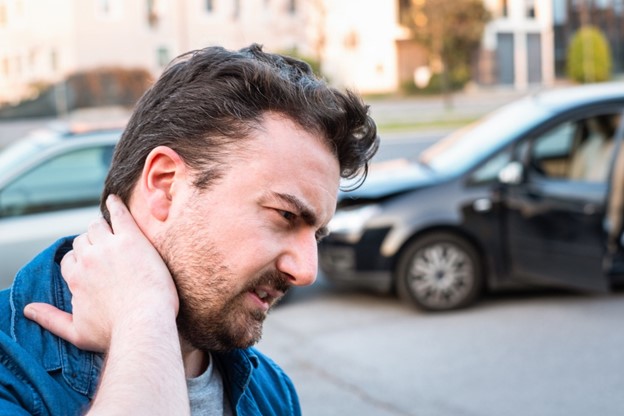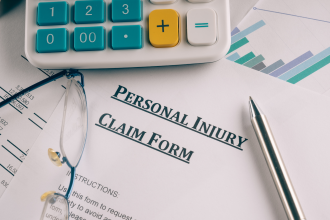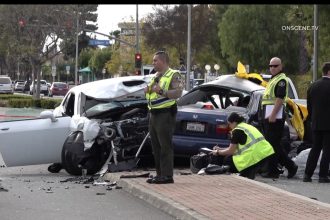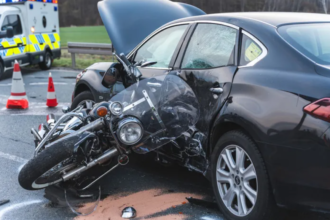A lot of single-car accidents happen because drivers fall asleep at the wheel. In fact, one in twenty-five adult drivers say they’ve done it.
- 1. How Fault Is Established in a Single-Car Accident
- 2. Possible Causes of Single-Vehicle Accidents
- 3. Key Factors Considered When Assigning Fault in a Single-Vehicle Accident
- 4. Car Accident Insurance Covers Single-Car Accidents
- 5. Legal Consequences Are Possible
- 6. Legal Help Is Available
- How to Secure Fair Compensation
There are, however, many reasons why these accidents can happen, such as being busy, going too fast, or bad weather. Because many circumstances influence a single-car accident, everyone should prepare for this kind of collision. Understanding fault and insurance plans can help you protect your rights and get compensation for damages.
Here are six things you must learn about single-car accidents, including liability and how to establish fault.
1. How Fault Is Established in a Single-Car Accident
Single-vehicle crashes often don’t have direct witnesses like multi-vehicle accidents do. There is still a chance that the driver isn’t at fault, though.
When a crash only involves one car, the police do a full investigation to find out who’s at fault. As part of the investigation, the crash area may be looked at, damage patterns may be studied, and the driver involved may be questioned.
2. Possible Causes of Single-Vehicle Accidents
Distracted driving is still one of the main reasons why car accidents happen. Texting, talking on the phone, eating, or even fiddling with the car’s controls can take a driver’s attention away from the road and cause a crash. In this case, the driver would be at fault.
In the same way, driving too fast makes it harder to deal with unexpected events, which raises the risk of a single-car accident.
Single-vehicle crashes can also happen on roads that aren’t well taken care of and have uneven surfaces, cracks, or are slippery. If local road officials knew about these conditions but didn’t fix them, they could be responsible for the damages.
Encountering deer or other animals on the road can also make a driver lose control, which can lead to a single-car crash.
To prove this, you would have to show that the animals were on the road. There must also be evidence that no fences or signs were telling you not to go there. Wildlife tracks and video from a dashcam would be helpful here.
If a single-car accident happens because of a problem with the car’s mechanics, the company that made the car may be responsible.
3. Key Factors Considered When Assigning Fault in a Single-Vehicle Accident
Statements from the driver can help a lot with figuring out what happened before the crash since there aren’t usually any witnesses. The driver’s behavior, such as following the rules of the road, being sober, and any signs of carelessness, will be carefully looked at when deciding who is to blame.
4. Car Accident Insurance Covers Single-Car Accidents
Collision insurance is a type of car insurance coverage that can help pay for repairs or replacement of your vehicle if it is damaged in a single-car accident. This insurance usually pays to fix your car up to its current market value. If the damage is too bad to fix, it will pay for a new one.
While collision insurance is a valuable form of coverage, there are some limitations to keep in mind. As with most insurance plans, you will have to pay a deductible amount before the insurance starts to pay for things.
Also, the coverage is usually based on how much your car is worth. The actual cash value is found by looking at the age of your car, its damage, and how many miles you’ve driven. The insurance company will only pay as much as your car was worth at the time of the accident.
That being said, collision insurance doesn’t cover all kinds of damage or loss. You should carefully read the policy to find out if any limits affect your coverage.
5. Legal Consequences Are Possible
Even if it was a minor car accident, traffic violations may still be issued, leading to penalties.
Failure to stop is one of the most common traffic errors that can happen after a single-car crash. A driver can get a ticket if they don’t yield when they should, like at a stop sign or traffic light.
You may also have to deal with a points system. In some states, each ticket you get earns points on your driving record. If you get enough points, your license could be taken away.
Another reason you might get a traffic ticket after a crash is going over the speed limit.
Different states have different penalties for driving infractions. Depending on how bad the violation was, the sanctions can include fines, license bans, or even jail time.
Also, if you’re found to be at fault for the accident, you could face higher insurance rates in the future.
6. Legal Help Is Available
If you were seriously hurt in a one-car crash that wasn’t your fault, you need to talk to a lawyer right away. Severe injuries can result in significant medical expenses, rehabilitation costs, and lost wages. A lawyer can help you get a fair payment for these losses.
It might not be easy to figure out who’s at fault and how much they should pay, but talking to a lawyer can make sure things are settled fairly if there are disagreements or questions.
It’s also best to talk to an expert if the insurance company is rejecting or undervaluing your claim. For instance, a motorcycle accident lawyer might be useful because a lot of their clients are in crashes with a single vehicle.
Remember that you only have a certain amount of time, called a statute of limitations, to file a case in each state. Talk to an expert right away to make a date.
How to Secure Fair Compensation
Find out who was at fault in the single-car accident to get fair pay. If it’s your fault, make sure you have collision coverage so you can get some money back.
If not, you should talk to a lawyer who can help you through the legal process. They will help you get proof, talk to the insurance company, and protect your rights.
Check out our other legal blog posts for more useful legal information. You will learn how to keep yourself safe in case of an accident or other legal issues.















